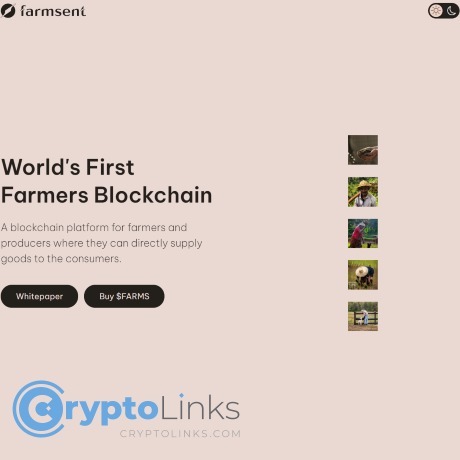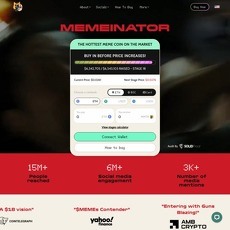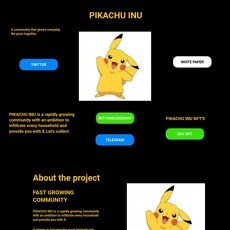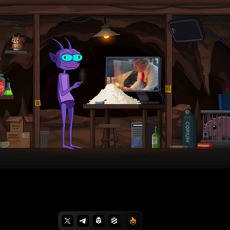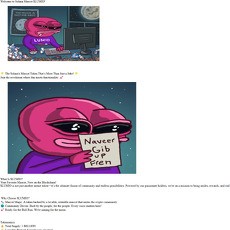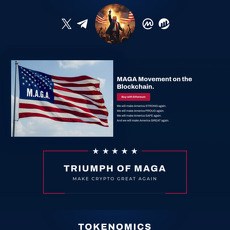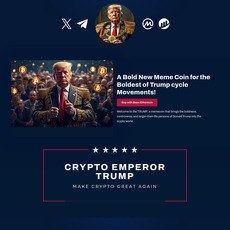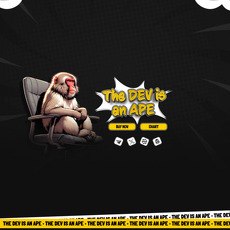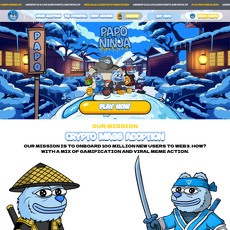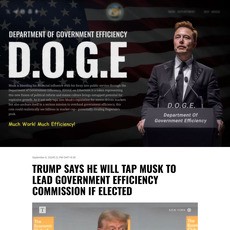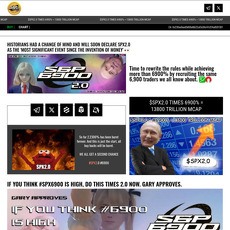farmsent Review
farmsent
farmsent.io
If your website is on the scam list and you think that you are not a scammer, contact us. After you provide us with all the proof that you are in Crypto World with good intentions, we will delist you. Usually, you get in this category because you are hiding your team, you have a bad reputation(you are tricking, deceiving, scamming people), and you haven't got a written project whitepaper or is a shitty one....
Their Official site text:
World’s First Farmer’s Blockchain
Farmsent Farm Paper
Contact
7. Glossaries
4. Road Map
6. Reference
2. How it works
1. Opening statement
5. Farmsent Tokenomics
5.1 Burn
3. Farmsent is optimizing the supply chain with blockchain
3
3
5
10
18
20
17
11
22
21
1.1 Statistics
1.2 Introduction
1.3 Direct Trade
2.1 Fair Future Contract (FFC)
2.2 Advantage Of Blockchain
2.3 Integration
2.4 Region focus
2.5 Catchment area
2.6 How bidding with NFT works
2.7 Market Region and territories
2.8 Current Challenges Faced by farmers
2.9 Current Challenges Faced by buyers
Mission
Vision
2.10 Farmsent Foundation
3.1 Introducing carbon emission
3.2 Farmsent Carbon Offset Program (FCOP)
3.3 Our Role
3.4 Advisors
3
3
19
12
12
13
14
6
6
6
6
7
8
8
8
10
10
10
Content Page
Farmsent Farm Paper | Decentralized farmers network
3
1.2 Introduction:
Trade is a basic economic concept involving the buying and selling of goods and
services, with compensation paid by a buyer to a seller, or the exchange of goods or
services between parties.
The trade industry hasn’t seen much change since its advert. Many importers
and exporters alike rely on the standard trade model, buying from distributors or
exporters and selling to wholesalers around the world. This standard trade practice
has given rise to many illegal activities and money laundering.
1.3 Direct Trade:
Direct trade involves the buyer acquiring the goods directly from the source, without
the involvement of any middlemen. This allows the farmers or the producers to set
the prices for the commodity, to make a higher profit, therefore, the buyer can get
better prices that haven’t been influenced by the middlemen or distributors.
1. Opening statement:
In the agricultural industry, farmers receive less than 10% of the total value of the product.
The middlemen take the bulk of the profit since they are at the end of the supply chain,
paying the farmers only a minimum wage for their labor.
1.1 Statistics:
As per statista.com’s reports, the global value of goods exported throughout the
world reached approximately 19 trillion U.S. dollars in 2019. Also in 2021, global trade
in goods reaches an all-time quarterly high of $5.6 trillion.
In spite of hitting an all-time high in global trade, the COVID-19 pandemic has had
devastating health and economic consequences, with unprecedented disruption
to people’s lives, the global economy, and world trade. The pandemic proved how
volatile the global trade is, leading hypermarts and grocery stores to run out of basic
food while farmers looked for alternative ways to reach their customers. Before the
pandemic, one-third of all food produced for human consumption was lost or wasted
across the food supply chain; stages including production, postharvest handling,
processing, distribution, and consumption.
Due to the COVID-19 pandemic, previously unresolved supply chain issues gained
more prominence, such as transparency, resilience, and digitization. Many global
traders are seeking new ways to source their goods in the midst of the pandemic as
the prices for commodity goods, shipping and distribution costs have skyrocketed.
The existing supply chain has to be remodeled to cater to the post-pandemic digital
economy which will rely on low latency and faster transactions with zero costs.
Farmsent Farm Paper | Decentralized farmers network
4
Many wholesale buyers are looking for alternative ways to imports their goods as the
prices have gone exceedingly high in the post-pandemic world. Likewise, farmers
and producers are looking for new ways to sell their goods and are fleeing the
centralized commodity exchanges and federations that offer lower prices for their
hard work and take in all the rewards as they represent the farmers and producers.
Our proposed decentralized direct trade model will be connecting the buyers with
farmers and producers directly under the ecosystem of Blockchain technology. It will
not only make trade more transparent and profitable for all parties involved but also
encourage traders to move away from the current trade practices altogether.
Farms
Farmer
Shipping
2nd cooperative
Factory
Quality Check
cooperative
Warehousing
Blockchain
Deliver
Market
Package
Supply Chain
Buyers
Buyer
Standard Trade Journey
Farmsent Trade Journey
Agents
Farmsent
Farmsent Farm Paper | Decentralized farmers network
5
2. How it works:
Here are some of the products Farmsent will be offering:
We preapprove the farmers and the products; we also preapprove the buyers and give
them access to the platform. Farmers login into the platform, upload their products,
determine the pricing. Buyers either buy or bid. All the products farmers put in the platform
have a time limit, within that period the farmers are committed to selling the product
to Farmsent and the farmers cannot retrieve the product. If there is an interest from the
buyer, the tokens are locked, farmers deposit the goods, Farmsent team or partners verify
and the goods are marked for shipping, settlements happen.
All the farmers and business partners will go through a stringent KYB process, our staff on
the ground will help the farmers in the KYB process.
In phase 1, we will only list non-perishable products.
Farmsent Farm Paper | Decentralized farmers network
6
During phase 1, we will be doing business with the following countries:
Indonesia | Colombia | Sri Lanka | UAE | KSA | Bahrain | Kuwait | Oman
We are expected to grow both vertically (inclusion of more products) and
horizontally (expansion to more countries). We are aiming to start our operations
with 50 to 100 SKUs.
2.3 Integration:
As blockchain technology is decentralized, integration with our partners such as
quality standards, insurance, trade finance, packaging, shipping and logistics, etc
can be achieved in a timely and secure manner.
New partners can build their systems on our infrastructure without the need for a
central authority.
2.1 Fair Future Contract (FFC):
Fair Future Contract or FFC is a contract that doesn’t lock the farmers. The farmers
utilizing the FFC get to sell at the prevalent market price and not at the price
determined months ago. Under FFC Farmsent arranges a soft contract that is not
binding and in favor of the farmers.
2.4 Region focus:
In terms of operations, we are dividing target markets into export and import zones.
Our products are classified and based on these zones, our target market is expected
to grow organically.
2.2 Advantage Of Blockchain:
Using Blockchain Technology, Farmsent aims to eliminate the hurdles put by the
traditional financing systems. Our blockchain systems will enable us to keep
settlement records, facilitate settlements, and facilitate cross-border settlements
without the latency of traditional banks. Our smart contract mechanism requires less
human involvement and eliminates the cumbersome process of trade. Blockchain
transactions are transparent and expected to replace traditional systems in the
customs department and other government authorities in the future.
Buyers area: In phase 1, we are focusing on the following countries: MENA
Region
Farmsent Farm Paper | Decentralized farmers network
7
2.5 Catchment area:
Sellers area: In phase 1, we are focusing on the following countries: Colombia |
Indonesia
Farmsent Farm Paper | Decentralized farmers network
8
2.8 Current Challenges Faced by farmers:
Farmers must meet the changing needs of our planet and the expectations of
regulators, consumers, food processors, and retailers.
Environmental factors such as climate change, soil erosion, loss of biodiversity,
crop pests and diseases are challenges faced every season. On the other hand,
keeping up with customer preferences and concerns about crop treatment and
production have all contributed to increasing pressure.
While modern agriculture provides a large number of solutions, the outcome is
not always the same because each farm is unique: different landscapes, soils,
available technology, and potential yields.
Farmers need to meet the rising demand for more food of higher quality. In
recent years, there has been a shift in focus from concern about ‘enough food’ to
‘good food’.
2.7 Market Region and territories:
Farmsent will operate in hotspots for non-perishables, such as Indonesia, Sri
Lanka, and Colombia. By leveraging our connections with small-scale farmers who
grow rice, cardamom, vanilla, barley, cinnamon, and other crops including coffee
beans and tea, we can facilitate and connect them to buyers in the MENA region
on Farmsent’s blockchain-based platform.
2.6 How bidding with NFT works:
We are following the English auction mechanism in Farmsent whereby a new bidder
has to bid higher than the previous bidder. The previous bidder is released from the
bidding pool. In blockchain mechanism, the bid is locked into a smart contract once
the highest bidder wins, the amount is auto distributed.
Each bidding pool has an expiry time, at the expiration of that time whoever has bid
the highest wins the trade.
In addition to offering a platform for businesses to buy from farmers, we have also
observed that bidding for certain products, such as coffee, is prevalent in certain
countries. Taking a cue from such situations we have decided to include the bidding
mechanism in Farmsent ecosystem as this can provide a better return to the
farmers.
Farmsent Farm Paper | Decentralized farmers network
9
Agritech is raising crop productivity, but farmers need to invest in such
technology, from treated seeds and crop protection products to dataanalysis apps and precision spraying. While large-scale farmers may be
able to afford to invest, small-scale farmers don’t always have access to
an affordable source of credit. And then farmers must learn how to best
use these technologies to improve their business.
Farmers’ business decisions are impacted by global economic factors,
such as fluctuating commodity prices and trade issues, and the fact that
the harvest may be affected by weather, insects, or disease.
There’s also the question of who is going to farm in the future? As millions
of people from rural areas migrate to cities each year, farmers need to
inspire enough of them to remain and build a career in agriculture.
Generally, traded goods are transferred from hand to hand, starting
from the time they are cultivated, continuing to the destination.
Farmers produce a variety of crops that are then processed and packed
at packing and sorting facilities, stored in a series of warehouses,
distributed, and regulated by several logistical parties until they reach the
final consumer. As more parties enter the supply chain, the price of the
goods increases tremendously with each exchange.
Globally, farmers face unfair trade systems. They are faced with big
corporations whose desire to maximize profits has pushed many to lose
their land, abandon farming and pursue other careers. Additionally,
climate change is making farming extremely difficult. With the rise
in temperature and precipitation, abrupt changes in droughts, and
decreasing rainfall, farmers are finding it even harder to survive. The
Covid pandemic has caused significant disruption to global trade as
well. In 2020, global trade fell by 8.9%, the steepest drop since the
global financial crisis and it had a significant impact on shipping costs,
which have increased by around 350% since May 2020. Adding to that
warehousing and distribution costs have also increased in the midst of
the pandemic.
We propose to reduce the number of parties entering the supply chain
by implementing blockchain technology. In addition to lowering the
prices, as it will be more environmentally sustainable, highly secure, and
transparent for all those involved in the trade.
Farmsent Farm Paper | Decentralized farmers network
10
Mission:
To provide a platform
built on an ecosystem of
blockchain for farmers
and producers where
they can securely supply
goods directly to the
consumers.
Vision:
We intend to eliminate the
dispensable middlemen
in the food industry by
linking the farmers straight
to the consumers through
blockchain technology and
ensuring food security.
2.10 Farmsent Foundation:
Farmsent aims to address issues facing farmers such as corps insurance, access to
fertilizers, Agritech, and volunteerism during harvest seasons. Farmsent foundation
will contribute to these causes to ensure our farmers’ well-being.
The Farmsent foundation will receive 5% of the $FARMS, which will be used to
improve and develop farms in various parts of the world.
2.9 Current Challenges Faced by buyers:
A buyer’s business revolves around the established trust that has been built
with all parties over a period of time. Once trust is established, business can be
conducted. But trust doesn’t guarantee deliveries of the products in time. There are
a wide variety of factors that can erode all of which are built upon trusts, such as
overpricing, price volatility, quality, payments, delays, transparency, and a host
of other factors. Even getting a quote on time can be a struggle involving multiple
emails, phone calls, and follow-ups. It can be stressful and time-consuming, to
maintain and keep up those relationships.
The discord between buyers and suppliers, communication gaps, conflicts over
contracts, and infatuating commodity prices are some of the main challenges faced
by modern buyers.
Farmsent Farm Paper | Decentralized farmers network
11
3. Farmsent is optimizing the supply chain with blockchain.
Farmsent gives farmers ownership of every seed they grow. By using Farmsent, farmers
can sell directly to the consumers. As the middleman line has decreased, there are more
profits for the farmers, who are able to grow better produce, while consumers have a
better source of fresh ingredients without having to rely on third parties.
Farmsent’s supply chain consists of the farmers/producers, associations/partners on
the ground to verify quality, and shipping partners.
All the groundwork is carried out by the farmsent team who are based in the origins
where the products are being sourced. This allows us to make sure the quality of the
products is of the highest standards and is not tempered with. After the products are
tested and verified they are packed and exported to the destination country to the
buyers, keeping the supply chain very minimal and reducing cost and carbon footprint
by many folds.
Consequently, farmers become the rightful owners of the products they grow,
communities are sustained, and lives are transformed. In choosing to directly buy from
the farmer without the shenanigans of the middleman, you open the door for thousands
of other farmers to return to their roots who have abandoned farming for good.
It is common for farmers to not receive their well-deserved share for the products they
grow since the products go through a complicated supply chain and are influenced by
many intermediaries along the way. In other words, once the farmers have harvested
their products, they no longer have control over them. The ones who are dealing at the
end of the supply chain take control over the products and make the most profit.
With the information of products, Farmsent allows the farmer to access the market
right up to the end of the sale. The closer the farmer is to the consumer, the more
they are rewarded. The products under the farmers’ supervision are sold via Farmsent
globally. This helps the farmer better understand consumer needs and yields in higher
rewards and helps the industry greatly.
Farmsent
chain
Supply
Chain
Farmers
Wellbeing
Carbon
Footprint
Payment
Decentralization
Fair
Future
Contracts
Negotiation
Food
Security
Farmsent Farm Paper | Decentralized farmers network
12
3.2 Farmsent Carbon Offset Program (FCOP):
Farmsent is conscious about carbon emission and is working with
organizations that are providing verifiable carbon units to offset carbon
footprints caused by trade conducted in Farmsent ecosystem. For each
trade happening in Farmsent the equivalent carbon footprint will be
offset, making Farmsent the greenest trade platform in the world.
3.1 Introducing carbon emission:
The majority of carbon dioxide comes from burning fossil fuels, such
as coal, oil, and natural gas. Coal companies and large oil and gas
companies are major emitters of carbon dioxide. Human activity has
caused atmospheric CO2 to increase by about 50% over pre-industrial
levels.
The long-term impact of global trade on carbon dioxide (CO2) emissions
has been largely ignored.
As trade grows, emissions will increase substantially unless special
measures are taken. In spite of technological development and efficiency
improvements over the next three-and-a-half decades, the CO2
emissions from international trade-related freight transport will rise by
290% by 2050.
As a result of living in the modern world, we all leave a carbon footprint.
The food we eat, the things we shop for, and the travel we do all
contribute to carbon emissions. In the case of companies, business
activities such as shipping, electricity generation, industrial processes,
and farming can contribute to our carbon footprint.
The only way to avoid climate catastrophe and achieve the climate
targets outlined in the Paris Agreement is to drastically reduce carbon
emissions.
Globalization has reduced the world into small villages, although it
has made our lives easier it has played an accelerated role in carbon
emission. Most of the supply chain entities have not recognized the
carbon emission caused by the supply chain and logistics network.
Farmsent Farm Paper | Decentralized farmers network
13
John Ciro
Yog Shrusti
Jamal Akkad
Jenan Mohamedi Ben Grero
Saleh Sharif
Hugo Valencia
CXO KSA
CXO | Colombia
Co-Founder | CEO
Co-Founder | CBO
CPO | Colombia
Co-Founder | COO
CIO | CXO APAC - DACH
A leading technopreneur in the
Middle East with 25 years of
experience in information
technology and digital media, Yog
brings a unique combination of
business acumen, technical knowhow, and online strategy to the
Farmsent team.
John Ciro has a master’s in business
and comes from a family of coffee
farmers. With his deep understanding
of the real-world problems of farmers,
he brings a unique perspective to the
Farmsent team.
A rich professional knowledge
accumulation based on solid academic
foundations over three decades
of active participation in the oil
industry’s finance management and
the establishment of investment
mechanisms to develop and serve
innovative businesses.
Visual communication graduate, with 5
years experience in branding and design.
Jenan Mohamedi has worked on a
number of crypto projects, contributing
to the space with her experience in
design.
Over 25 years of experienced serial
entrepreneur, lecturer, innovator & a
technopreneur in DACH, GCC & APAC.
Ben brings a combination of APAC
business & strategic relations to the
Farmsent Team
Through his experience in international
trade, Saleh Sharif is combining direct
trade and blockchain technology and
applying it to the global trade industry
with the Farmsent team.
Hugo Valencia has over 15 years of
experience in the food industry and
he worked closely with the farmers
of Colombia. He was also part of the
coffee federation of Colombia where he
supervised over 2000 farmers.
3.3 Our role:
Rezha K.
CXO / Indonesia
Rezha is a vital part of Farmsent as he
has hands-on experience in farming
and continues to grow coffee, corn,
and other produce. He is a vital link
between farmers and Farmsent
management and brings real-world
experience into the mix.
Farmsent Farm Paper | Decentralized farmers network
14
Hamad AlJawder
Alianna Vechorkina Okke Gania
Yadien Syahbuddin
Info Tech Officer
Investor Relations, Dubai
DBD / Indonesia
ACXO / Indonesia
Hamad has over a decade of
experience in IT and multimedia and
has worked on a variety of startups. As
an IT specialist and multi-media expert,
he adds great value to the Farmsent
team.
Alianna brings a wide experience in sales
and business development mainly in
Middle East region with strong focus on
investor relationship.
From a seasoned photographer to a
farmer, Okke has been switching roles
for the betterment of coffee farmers.
Okke has a tremendous reach with
them and understands their day-today plights. He is determined to make
Indonesian farmers earn their living
with pride while the world enjoys a sip
of Indonesia’s best-kept secret, a west
Javan coffee.
Yadien Syahbuddin is an accomplished
creative and technology entrepreneur
with over 20 years of experience.
Passionate about utilizing creative and
technology approach into establishing a
more sustainable ecosystem for coffee
farmers in Java and Indonesia.
Farmsent Farm Paper | Decentralized farmers network
15
3.4 Advisors:
Farsam Shadab
Ahmed Khuzaie Kosta Kourotsidis
Sim Khela
Cleveland Brown
InterEnactive Founder of Enaxion
Bahraini Political Consultant / General Manager / Advisor
Advisor
Consultant
Ahmed Khuzaie has cross-industry
experience ranging from managing
regional marketing campaigns
with international names like HSBC
Bank. He published ‘The Book of
Management,’ ‘Contractum Trinius’,
‘Political Campaign Planning
Manual’ and ‘Kingdom of Bahrain:
Political Review.’
Kosta comes over 2 decades of
hospitality experience in Europe and
Middle East with main background
of Food & Beverage. Last ten years
Kosta is serving as General Manager
in several Luxury Hotels across the
region. Farmsent will benefit from his
broad experience.
Founder, Head of Research, CTO.
InterEnactive Founder of Enaxion,
InterEnactive and the Bay Area’s
first Integral Commons (2002-
2004; also first in the USA), Farsam
Shadab has taken a background
in Cognitive Science as well
as 20 years of Integral studies
(both academic and applied)
into the world’s first full-realized
Integral platform for “Holonomic”
interactivity that marries
decentralization tools (Holochain)
with holistic AR. In 1998, Farsam also
seeded Jimmy Wales with his first
concepts for what would become
known as Wikipedia.
Engineer and Blockchain
consultant, Sim has 10 years of
experience in the crypto markets.
He consults with corporations,
projects, governments and
individuals to support the
investment, deployment, and
operations for Blockchain projects.
Consultant
With more than 20 years of
experience in various disciplines
of Computer Science, Cleveland is
often referred to as “The Link” due
to his capacity to connect integral
networks of reputable businesses
and individuals in efforts to shape
the next generation technological
innovation. He currently
functions as a consultant in the
conceptualization, management
and implementation tech/
blockchain solutions.
Farmsent Farm Paper | Decentralized farmers network
16
3.4 Advisors:
Soham Panchamiya
Web3 Lawyer
Soham is a regulatory and
disputes lawyer with a
particular focus on tech and
Web3 based in Dubai. He
works cross- jurisdictionally
across the Middle East, with
most of his work coming from
the UAE and Saudi Arabia.
Shoaib Ahmed
Advisor
A performance-driven
professional offering over 19 years
of international experience in the
freight/logistics/Supply Chain
industry with vast and in-depth
knowledge of airline/shipping
operations,finance and IT.
Senthil Kumaran
Co-Founder/CEO at
BlockchainX and Sparkout
Tech
His experience goes beyond
just blockchain & crypto, having
been involved in multiple
successful business ventures,
and current Co-Founder/CEO
at BlockchainX and Sparkout
Tech, a leading blockchain
development company with a
global clientele.
Yokesh Sankar
Co-Founder/COO at
BlockchainX and Sparkout
Tech
Co-Founder/COO at BlockchainX
and Sparkout Tech, a leading
software development company,
and has hands-on experience
working with multiple crypto and
enterprise blockchain projects
worldwide. His experience stems
from building a successful
bootstrapped businesses, as a self
driven leader.
Farmsent Farm Paper | Decentralized farmers network
17
2023
2022
Q1:
Q1:
Q2:
Q2:
Q3:
Q4:
Q4:NFT Bidding
Metaverse NFT Launch
Metaverse Launch
Private Round
Listing
Staking Dapp
Partnership
Trading
Integration with 5Harvest0
Marketplace Development Alpha
Concept and Architecture
Alpha Completed
Q3: Further Development & Country Partnerships
Token Launch
Token Listing
Marketplace Beta
Wallet Beta
NFT Launch
4. Road Map:
Farmsent Farm Paper | Decentralized farmers network
18
5. FARMSENT TOKENOMICS:
The $FARMS Token is designed to improve trust between all
parties in all aspects of the trade process. These tokens serve
as the primary instrument on the Farmsent platform.
Max Supply 10,000,000,000 $FARMS
$FARMS
You can use the $FARMS token to pay for the network fees and subscription etc.
$FARMS Utility:
$FARMS will be used for the following functions:
• $FARMS will be used to distribute fees on the Farmsent platform.
• $FARMS will be used to pay Farmsent platform subscription fees and network fees.
• $FARMS will enable users to participate in the protocol’s governance. As governance
rights are stake-based, the more $FARMS you stake, the greater your control over
various governance decisions.
• The Farmsent platform will largely rely on $FARMS to allow trade goods to be bid
upon. Users who hold $FARMS will be allowed to place bids on the auctioned goods.
• With the $FARMS, liquidity providers can stake their tokens to earn rewards.
• Sellers will be required to Pay or Stake a specific amount of $FARMS to access the
Farmsent platform.
• $FARMS will also contribute to making the platform more trustworthy between
different parties.
• $FARMS will also be rewarded to buyers with good behavior.
Division Percentage Tokens
Foundation
Team
Public Sale
Advisors
Partners
Private Sale
Liquidity
Reserve
Rewards
Total
5
15
5
5
10
10
10
30
10
100
500,000,000
1,500,000,000
500,000,000
500,000,000
1,000,000,000
1,000,000,000
1,000,000,000
3,000,000,000
1,000,000,000
10,000,000,000
Farmsent Farm Paper | Decentralized farmers network
19
5.1 Buy Back
Revenue from the transaction fees will be used to purchase $FARMS token from
the market and will be added to liquidity or burnt periodically.
Vesting
Type
Team
Private / VC
Public
Advisors
Partners
Cliff
12 Months
6 Months
0
12 Months
12 Months
Vesting
10% Every Month
10% Every Month
0
10% Every Month
10% Every Month
Reserve
30%
Team
15%
Private
10%
Partners
10%
Liquidity
10%
Rewards
10%
Public
5%
Foundation
5%
Advisors
5%
Farmsent Farm Paper | Decentralized farmers network
20
6. Reference:
https://www.itf-oecd.org/sites/default/files/docs/cop-pdf-06.pdf
https://earthhero.com/carbon-emissions/
https://www.compensate.com/articles/new-to-carbon-offsettingstart-here?gclid=CjwKCAiAx8KQBhAGEiwAD3EiPwdewGK4oW2Cor
N2Mp9hdqw16RBt5Z8VOZGTiwu4zaIJJdx6-VJU2RoC2kQQAvD_BwE
https://en.wikipedia.org/wiki/Greenhouse_gas_emissions
https://academic.oup.com/fqs/article/4/4/167/5896496
https://blockheadtechnologies.com/how-blockchain-isrevolutionising-food-supply-chains/#:~:text=Blockchain%20
technology%20provides%20traceability%2C%20security,have%20
access%20to%20the%20information.
https://www.sciencedirect.com/science/article/pii/
S0739885921001384
https://www.investopedia.com/terms/f/futurescontract.
asp#:~:text=A%20futures%20contract%20is%20a,trading%20on%20
a%20futures%20exchange
https://en.wikipedia.org/wiki/Non-fungible_token
https://coinmarketcap.com/alexandria/article/what-is-a-node
https://en.wikipedia.org/wiki/Paris_Agreement
Farmsent Farm Paper | Decentralized farmers network
21
7. Glossaries:
NFT:
A non-fungible token (NFT) is a non-interchangeable unit of
data stored on a blockchain, a form of digital ledger, that can
be sold and traded. Types of NFT data units may be associated
with digital files such as photos, videos, and audio. Because
each token is uniquely identifiable, NFTs differ from blockchain
cryptocurrencies, such as Bitcoin.
Future Contract:
As a legal instrument, a future contract is a commitment to buy
or sell a commodity asset, or security, at a predetermined price
at a specific future time. The purpose of futures contracts is to
facilitate trading on futures exchanges by standardizing their
quality and quantity.
Blockchain Node:
Blockchain nodes refer to a network’s stakeholders and/or their
devices, which are designated to keep a copy of the distributed
ledger and serve as communication points that execute various
essential network functions. A blockchain node’s main purpose
is to verify the validity of each succeeding batch of network
transactions, called blocks. Each node has a unique identifier
attached to its device that allows it to be distinguished from
others in the network.
Blockchain:
Central to the appeal and functionality of Bitcoin and other
cryptocurrencies is blockchain technology. As its name indicates,
blockchain is essentially a set of connected blocks or an online
ledger. Each block contains a set of transactions that have been
independently verified by each member of the network. Every
new block generated must be verified by each node before being
confirmed, making it almost impossible to forge transaction
histories. The contents of the online ledger must be agreed
upon by the entire network of an individual node, or computer
maintaining a copy of the ledger.
Farmsent Farm Paper | Decentralized farmers network
22
Contact Info:
[email protected]
+973 36414612
www.farmsent.io
FARMSENT FZCO
38th Floor, Media One
Hotel Office Tower, Dubai
Media City, PO Box 334069,
Dubai, United Arab Emirates

